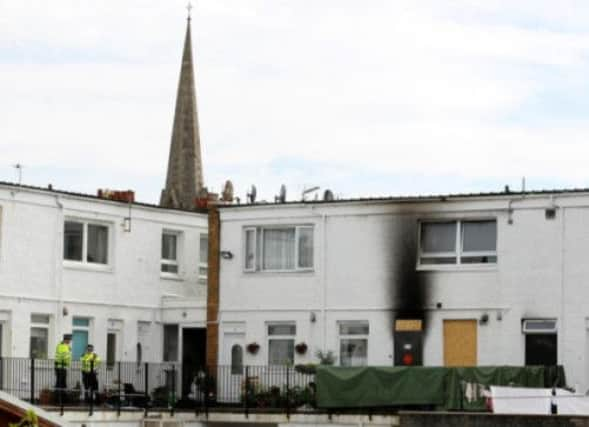Sharkey fire trial: Jury told to put aside sympathy


Thomas Sharkey Jnr, 21, and his eight-year-old sister Bridget died in the blaze at their Scott Court home in Helensburgh, Argyll and Bute, in the early hours of July 24 2011.
Their father, 55-year-old Thomas Sharkey Snr, died of his injuries in hospital six days later.
Advertisement
Hide AdAdvertisement
Hide AdRobert Jennings, 50, and Scott Snowden, 38, deny a triple murder charge, as well as the attempted murder of Mr Sharkey’s wife Angela, 48, who survived the fire.
Giving his legal directions to the jury at the High Court in Glasgow, judge Lord Matthews told them they must consider each accused separately and return separate verdicts.
He also told them to put any sympathy for those at the centre of the case out of their heads.
He said: “Sympathy, either for the accused who are facing serious charges... or for the victims, in particular the Sharkey family, must play no part in your deliberations.
“These are normal human reactions but you must simply put them out of your mind.”
Verdict
The judge, who had been giving his directions for around three hours, also told the jury: “At the end of the day, you have to return a true verdict in accordance with the evidence, without fear or favour and in accordance with your oath.”
Lord Matthews told the jury it was up to them to decide which evidence to accept and which to reject.
“You can have regard to the demeanour of witnesses, that is the way in which they give their evidence,” he said.
Advertisement
Hide AdAdvertisement
Hide Ad“You should consider all the evidence to see how, if at all, it fits together.”
He told them to assess the credibility and reliability of the various strands of evidence, and said the jury could accept a witness’s evidence in whole or in part.
The judge went on: “You have to ask yourself if any witnesses have any sort of agenda. Rumours and opinions of witnesses simply do not matter.”
Lord Matthews said the burden of proof sits “fairly and squarely with the Crown”.
He said: “The standard of proof which the Crown must reach is a high one, namely proof beyond reasonable doubt.
“A reasonable doubt is not some fanciful, speculative or far-fetched doubt, but one based on reason.”
He said such a doubt would be one which would make you pause or think again before making an important decision about your own affairs.
In his summing up, the judge touched on other aspects relating to the law, such as hearsay and corroboration of evidence.
Advertisement
Hide AdAdvertisement
Hide AdOnce the legal directions are concluded, the jurors will be asked to retire to consider their verdicts.
In addition to murder and attempted murder, Snowden and Jennings deny a string of charges including wilful fire-raising, assault and being concerned in the supply of drugs.